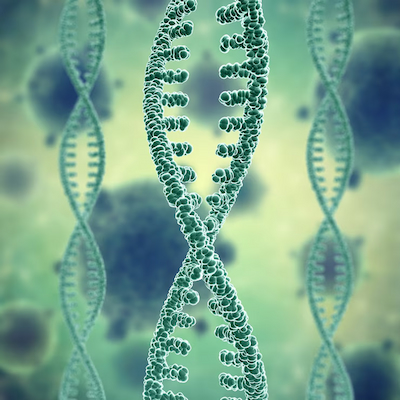
The exploration of alternative genetic codes is a fascinating field that has drawn the attention of scientists and theorists across disciplines. As molecular biology advances, new possibilities for understanding life and evolution emerge. Alternative genetic codes challenge the traditional view of the genetic code, proposing that life may exist in forms we do not yet fully understand. This not only expands our understanding of biology but also raises intriguing questions about the possibility of life on other planets.
In the context of astronomy, the search for extraterrestrial life often focuses on finding organisms that share traits with life on Earth. However, the idea that alien life forms might operate under alternative genetic codes opens up a whole new range of possibilities. Research in this area could not only revolutionize our understanding of biology but also change how we approach the search for life beyond our planet.
How Do Alternative Genetic Codes Work?
Alternative genetic codes work through variations in how genetic information is encoded and translated into proteins. In known organisms, the genetic code is a sequence of nucleotides that determines the formation of amino acids, which then form proteins. However, the existence of alternative genetic codes suggests that different nucleotide sequences might result in different amino acids or even new functionalities. This implies that the diversity of life could be greater than previously thought.
These codes can arise from mutations that change how nucleotides are interpreted. For instance, in some organisms, certain codons can be translated differently, leading to the production of proteins with novel functions. This genetic plasticity is one of the aspects that makes biology so dynamic and adaptable, allowing life to adjust to different environments and conditions. Research on these variations may also reveal how life can evolve in extreme conditions, such as those on other planets.
The discovery of alternative genetic codes may have significant implications for biotechnology and medicine. By understanding how different genetic sequences can result in different proteins, scientists can develop new therapies and treatments for genetic diseases. This approach could lead to more effective and personalized treatments, leveraging genetic diversity to create innovative solutions.
Finally, research into alternative genetic codes also explores how these systems interact with the environment. The way organisms adapt and evolve in response to environmental pressures can be influenced by these genetic variations. Thus, understanding alternative genetic codes is not only a matter of molecular biology but also of ecology and evolution, providing a more holistic view of life.

Advantages of Exploring Alternative Genetic Codes: Theoretical Possibilities
Exploring alternative genetic codes offers several advantages that can expand our understanding of life and its possibilities. First, this research may reveal new life forms that do not fit existing paradigms. The discovery of organisms using alternative genetic codes could challenge traditional definitions of life and open new areas of scientific inquiry. This could lead to unexpected discoveries about biodiversity and adaptation.
Second, alternative genetic codes can offer valuable insights into evolution. By studying how different organisms use variations in the genetic code, scientists can better understand mechanisms of adaptation and survival. This can help answer fundamental questions about how life diversified over time and how environmental pressures shaped the traits of organisms.
In addition, research on alternative genetic codes may have practical applications in biotechnology. The ability to manipulate and understand different genetic sequences can lead to innovations in areas like agriculture, medicine, and biofuel production. For example, if scientists can identify and utilize alternative genetic codes in plants, this could result in crops more resistant to disease and adverse conditions.
Lastly, exploring alternative genetic codes can enrich the search for extraterrestrial life. By expanding our understanding of life’s possibilities, we can refine our research strategies and increase the chances of finding organisms on other planets. This would not only broaden our knowledge of the universe but could also have profound philosophical implications about humanity’s place in the cosmos.
How Is Research on Alternative Genetic Codes Conducted?
Research on alternative genetic codes begins with understanding molecular biology and how genetic codes are formed. Scientists study the structure of DNA and how genetic information is stored and transmitted. This theoretical foundation is essential for identifying variations that may occur in different organisms. Through advanced sequencing techniques, researchers can map and compare the genomes of various species, looking for patterns that suggest the presence of alternative codes.
Understanding Molecular Biology and Alternative Genetic Codes: Molecular biology provides the tools needed to study the structure and function of nucleic acids. Understanding how DNA is organized and how it translates into proteins is key to unlocking the mysteries of alternative genetic codes. Research in this area involves analyzing nucleotide sequences and identifying mutations that may alter code interpretation.
The Importance of DNA Sequencing in Genetic Evolution: DNA sequencing is a crucial technique in the study of alternative genetic codes. It allows scientists to compare genomes across different organisms, identifying variations that may have arisen over the course of evolution. This comparison helps explain how alternative codes diverge and what environmental factors might influence these changes.
Mutations and Their Implications for Genetic Codes: Mutations are changes in nucleotide sequences that can significantly impact gene expression. These changes can result in alternative codes that produce proteins with different or entirely new functions. Research on mutations helps scientists better understand how genetic diversity appears in nature.
The Expansion and Variation of the Genetic Code: The genetic code is not static; it can expand and adapt to new conditions. Research into how different organisms use variations in their genetic codes can reveal insights into life’s plasticity. This is especially relevant when considering the possibility of life in extreme environments, where traditional biological rules may not apply.
The Relationship Between Protein Synthesis and Alternative Codes: Protein synthesis is the process by which cells produce proteins from genetic information. Exploring how alternative genetic codes influence protein synthesis may lead to discoveries about how different proteins are formed and how they function. This is vital to understanding the biology of organisms that might operate under alternative codes.
Exploring Theoretical Possibilities in Astronomy: Research on alternative genetic codes also extends to astronomy, where scientists speculate on the possibility of life on other planets. Understanding how life might manifest in different forms can inform our search strategies for extraterrestrial life. This involves considering environments that may not be compatible with Earth-based life but could support organisms with alternative codes.

Did You Enjoy Learning About Alternative Genetic Codes: Theoretical Possibilities?
The exploration of alternative genetic codes is a field that not only challenges what we know about biology but also opens new doors to understanding life in our universe. By considering the variations that may exist, we expand our scientific horizons and potentially discover new forms of life that defy our current definitions.
If you found this topic interesting, continue following the research and innovations in this fascinating area. The future of biology and astronomy may surprise us with discoveries that change our perception of what it means to be alive.
Frequently Asked Questions
What are alternative genetic codes?
Alternative genetic codes are different ways of encoding genetic information. They deviate from the standard code we are familiar with.
What are the theoretical possibilities of alternative genetic codes?
Theoretical possibilities include entirely new life forms. They may influence how organisms develop and adapt.
How do researchers study these codes?
Researchers use molecular biology and genetic techniques. They analyze DNA sequences and experiment with cells.
Are there examples of organisms with alternative codes?
Yes! Some organisms, like certain bacteria and mitochondria, have unique alternative genetic codes. These examples help us understand life’s diversity.
Why is this important for science?
Understanding alternative genetic codes helps explain how life evolves. It aids in discovering new treatments and even designing custom organisms.
Can alternative genetic codes exist on other planets?
Yes, it’s possible. If life evolved under different conditions, it could use a code entirely different from Earth’s.
How do mutations affect genetic code variation?
Mutations can alter how DNA is interpreted, leading to new codons and possibly new biological functions.
Could studying alternative codes help in medicine?
Absolutely. Learning how genetic variations work might lead to new therapies for genetic disorders and personalized treatments.

